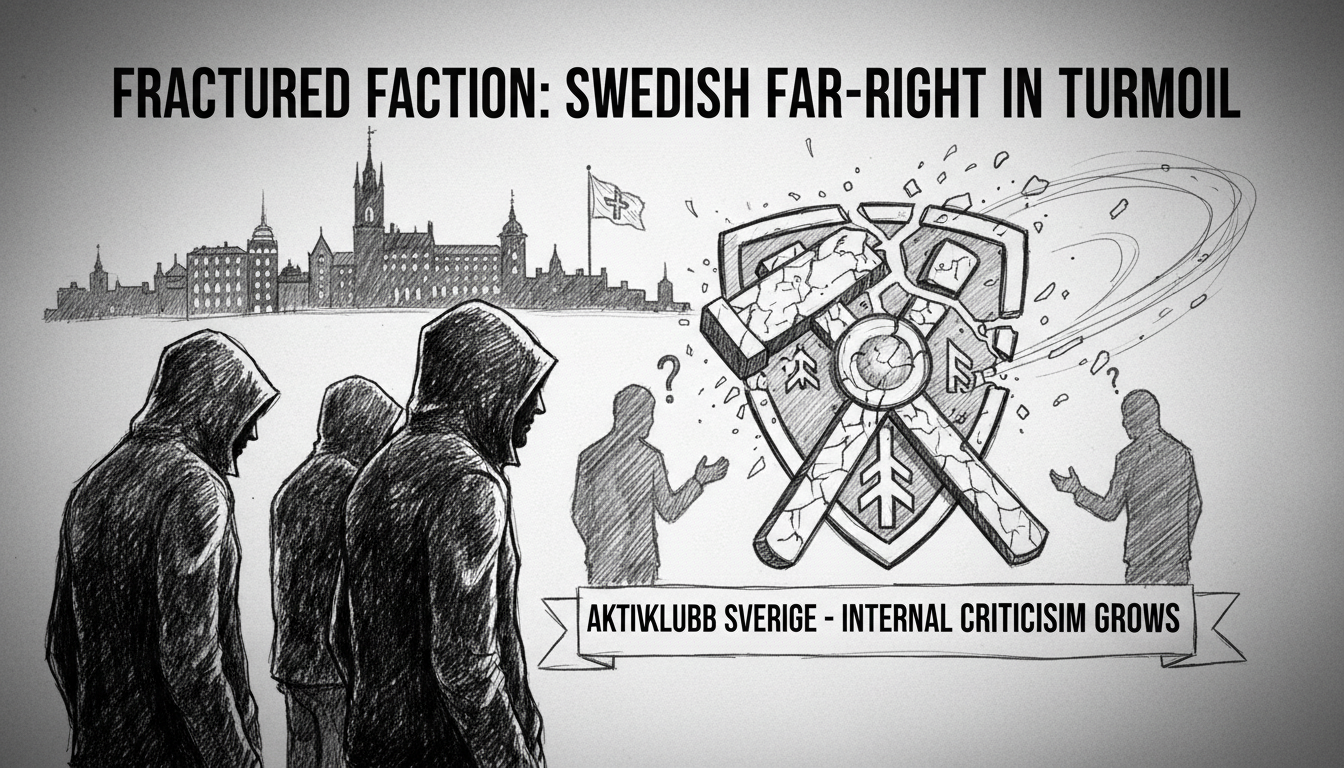Prosecutors are demanding lengthy prison sentences for members of Aktivklubb Sverige, a far-right organization facing trial for violent attacks in Stockholm. The group stands accused of assaulting multiple men with immigrant backgrounds during what authorities describe as a violent tour through central Stockholm last summer.
In Stockholm District Court's security chamber, prosecutor Gustav Andersson argued for multi-year prison terms. He stated that three defendants deserve at least four and a half years in prison, while a fourth should receive nearly five years. The final court day concluded with these strong sentencing recommendations.
Internal criticism within the far-right movement is now growing against Aktivklubb Sverige. Members of the broader extremist movement are expressing concerns about the violent methods employed by the group. This internal dissent suggests fragmentation within Sweden's right-wing extremist circles.
Sweden has experienced increasing political violence in recent years, with both far-right and far-left groups becoming more active. The Swedish legal system takes organized political violence seriously, often resulting in harsh sentences when convictions occur. This case represents part of a broader pattern where authorities are cracking down on extremist groups that engage in physical violence.
For international observers, this case highlights Sweden's ongoing struggle with political extremism. The Nordic country, known for its progressive policies and social welfare system, continues to confront challenges from organized extremist movements. The internal criticism emerging within these groups indicates potential ideological divisions about tactics and public perception.
The sentencing demands reflect Sweden's legal approach to hate crimes and organized violence. Swedish courts typically impose stricter penalties when crimes demonstrate organized characteristics or target victims based on ethnicity or background. This case will test how the judicial system balances punishment with rehabilitation for politically motivated crimes.
What happens next could influence other extremist groups operating in Sweden. A strong sentencing outcome might deter similar violence, while internal divisions could reshape the country's far-right landscape. The verdict will also signal how effectively Sweden can address organized political violence through its legal system.
International readers should understand that while Sweden maintains low overall crime rates, political violence represents a growing concern. The country's approach combines legal action with social programs aimed at preventing radicalization. This case demonstrates the legal system's role in that comprehensive strategy.
